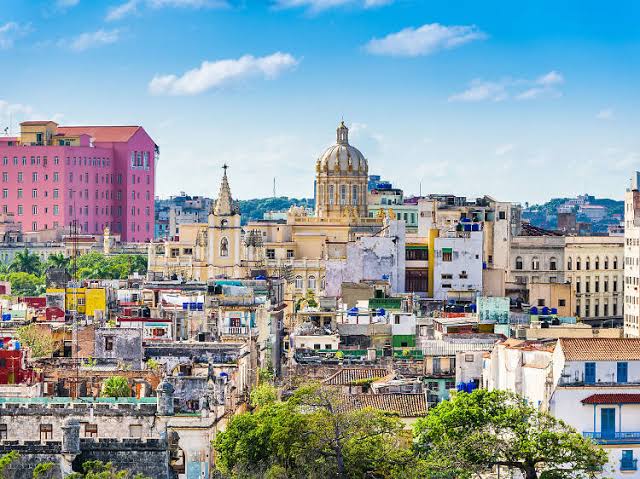The men of the Yumuri sugar co-operative in Cuba have worked the cane fields around Cienfuegos since they were old enough to use a machete. Cutting cane is all Miguel Guzmán has ever known. Coming from a family of farm hands, he started the tough work as a teenager.
For hundreds of years, sugar was central to Cuba’s economy, not just as the main export but also as the base for the rum industry. Older Cubans remember when the island relied heavily on families like Mr. Guzmán’s.
Today, Miguel says the sugar industry is in the worst shape he has ever seen. Even when the Soviet Union’s sugar quotas ended after the Cold War, things weren’t this bad. Inflation, shortages of basic goods, and the long-standing US economic embargo have made the situation in Cuba dire, especially in the sugar trade.
“There’s not enough trucks, and fuel shortages mean we often can’t work for days,” says Miguel, waiting in a small patch of shade for Soviet-era lorries to arrive. The lost hours during harvest season hurt production levels badly.
Last season, Cuba produced only 350,000 tonnes of raw sugar, an all-time low, far below the 1.3 million tonnes in 2019. Miguel is one of the fastest cutters in his team, known for his efficiency. Yet, he says he gets no financial reward for his hard work beyond his love for the trade. “My wages hardly buy anything anymore,” he says, reflecting on the country’s worsening inflation. “But what can we do? Cuba needs the sugar.”
Indeed, Cuba now imports sugar to meet domestic demand, a situation once unthinkable. This is a far cry from the days when Cuban sugar was exported worldwide and envied across the Caribbean.
Inside Ciudad Caracas, a 19th-century sugar mill near Cienfuegos, the air is thick with the smell of molasses. Rusting cogs grind tonnes of sugarcane into pulp and juice. Workers say it is one of just two dozen working sugar mills in Cuba. “That’s four more than planned for this season, thanks to the workers’ hard work,” says Dionis Pérez, communications director of the state-run sugar company, Azcuba. “But the other 29 mills are idle,” he admits.
“It’s a disaster. Today the sugar industry in Cuba almost doesn’t exist,” says Juan Triana of the Centre for Studies of the Cuban Economy in Havana. The slump in sugar impacts other parts of the Cuban economy, including rum exports. “We’re producing the same amount of sugar as Cuba did in the mid-19th century,” he notes.
The “maximum pressure” policy from former US President Donald Trump worsened the situation by tightening the trade embargo, a measure continued by President Joe Biden. But the issues facing Cuban sugar are not solely due to the US embargo. Years of mismanagement and underinvestment have devastated the once-thriving industry. Today, sugar receives less than 3% of state investment, as the Cuban government focuses on tourism instead.
One person still getting enough sugar is Martin Nizarane. His company Clamanta produces yoghurt and ice cream near Havana, using sugar imported from Colombia. President Miguel Díaz-Canel has praised his business as a model for the future. This signifies a shift, as Nizarane’s business operates on capitalist principles, despite his revolutionary credentials, shown by photographs of him with Fidel Castro in his office.
He denies that only those with close ties to the Communist Party can own such a business. “I am not an employee of the Cuban state. This is a non-state production that sells to both non-state and state-owned companies,” he says. “The state treats me like just another private entrepreneur with no special privileges.”
Sugar’s decline is just one part of Cuba’s economic troubles. On March 1, the government raised subsidized fuel prices fivefold to combat inflation, saying it could no longer afford the high subsidies. This decision hurt drivers like Manuel Domínguez, who says the prices are unaffordable given their low wages.
A few days later, economy and planning minister Alejandro Gil Fernández was arrested for alleged corruption. Some think he was scapegoated for the poor economy, but most believe it will take more than one minister’s fall to fix Cuba’s economic problems.
Back in the sugarcane fields of Cienfuegos, workers continue their grueling job with little hope. Many recall the famous Cuban saying, “Without sugar, there’s no country.” Economist Juan Triana believes this idea is being tested to its limit. The sugar industry’s decline is eroding a core part of Cuba’s national identity, something the island has relied on for over 150 years.











